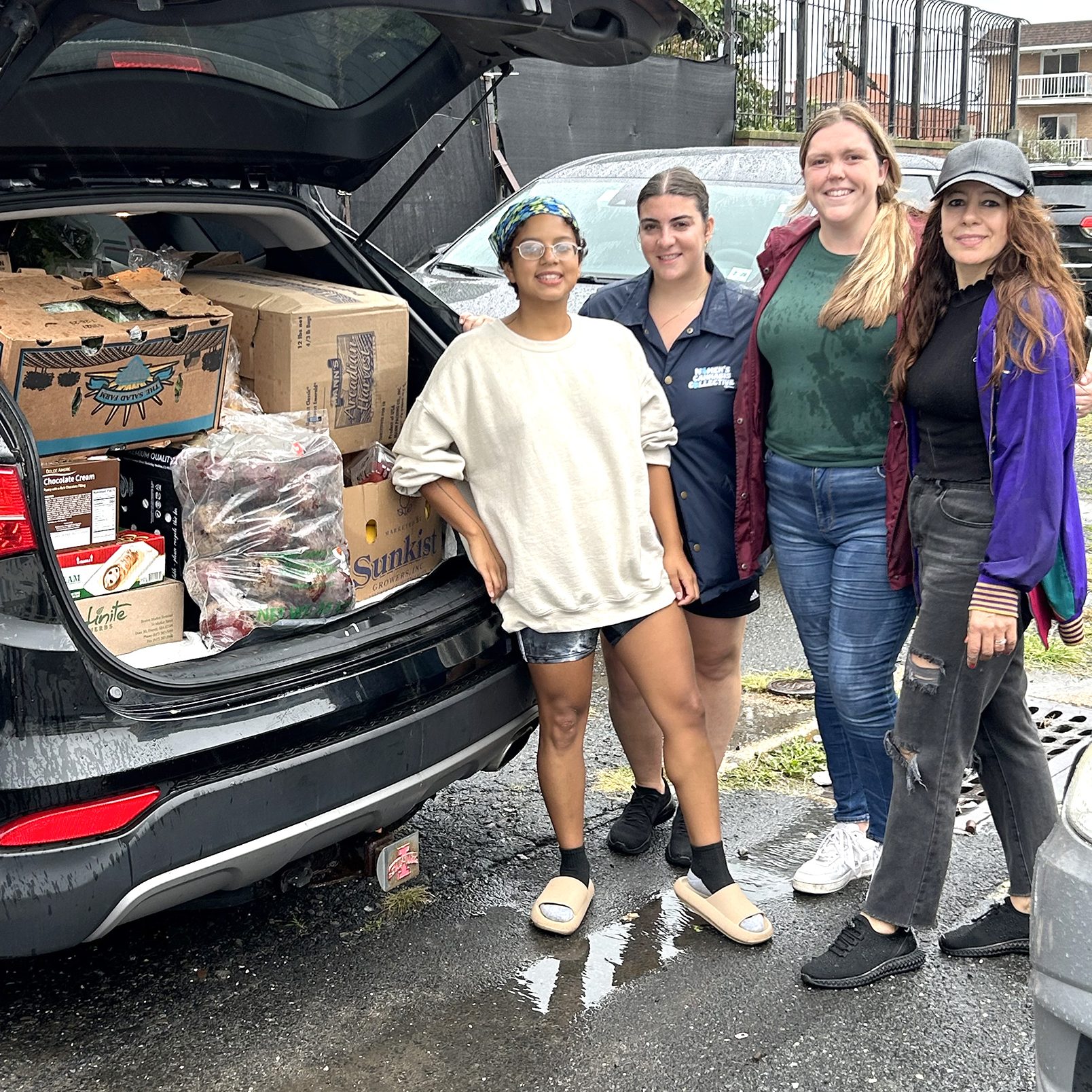
By Sunayana Prabhu
The nonprofit FoodRecovery.org has been collecting wholesome food in Monmouth County that would otherwise end up in landfills. The global nonprofit currently making headway in the Two River area sources edible, unsold food from area businesses and delivers it to local nonprofits that serve communities in need, free of cost.
On March 22, Allie Wilson, the northeast director of FoodRecovery.org, gave a presentation to the Monmouth County Division of Solid Waste & Recycling, and later to Holmdel Township’s Green Team in her outreach efforts to engage restaurants, school cafeterias, grocery stores, caterers, event planners, hotels, warehouses and other businesses in championing sustainability.
Wilson, who currently spearheads FoodRecovery.org’s outreach efforts in the Northeast, started as a volunteer with FoodRecovery.org in 2015 while working at a grocery store in Howell. There she witnessed the extent and impact of food waste firsthand. “A lot of food was available, but it wasn’t necessarily going to the right place in terms of food waste,” she said.
Among Wilson’s upcoming initiatives in the Two River area is the launch of a Student Food Recovery Taskforce with Ranney School in Tinton Falls. Leftover food from the school cafeteria will be delivered to local nonprofits. Additionally, the Fair Haven Farmers’ Market this year will be collaborating with FoodRecovery.org to donate any extra food they have.
Within Monmouth County, Wilson has been working in Long Branch, Freehold, Asbury Park, Howell and Tinton Falls and the impact is astounding. “Just from the two restaurants that we’ve been primarily working with in Long Branch, we’ve prevented over 20,000 meals from going into the landfill,” she said. All of that food was destined for the garbage, and it is the “same food… you and I would put on our plate,” she said.
A Monmouth County resident herself, Wilson has been working to divert excess food away from landfills to reduce greenhouse emissions and help put the brakes on climate change.
Wilson manages the transportation, planning and logistics for the nonprofit and delivers fresh food to local nonprofits within a strict timeframe for consumption.
She starts with an estimate of available food from restaurants – prepared, fresh groceries or shelf-stable food – and how often it will be available – daily, biweekly or weekly. Depending on that information, Wilson said, she looks for nonprofits that can accept the food within those timeframes.
In New Jersey, FoodRecovery.org has recently collected and donated over 10,000 meals to five area nonprofits. The organization has been working to prevent food insecurity since 2015 and continues to adapt to meet the needs of food businesses and nonprofit organizations. It has recovered over 52 million pounds of food from more than 3,000 nationwide partners in all 50 states and Washington, D.C.
Monmouth County has been leading initiatives committed to educating the public about limiting food waste through its Recycling Division. In an email to The Two River Times, Commissioner Director Thomas A. Arnone said, “The Monmouth County Recycling Division strives to educate residents, schools, businesses, and organizations about food waste. Ways to avoid this include not over-buying food and using leftovers to make another recipe.”
Reducing food waste has manifold benefits. It not only provides a financial incentive to restaurants by monetizing their excess food with tax rebates but also significantly helps the environment. However, FoodRecovery.org’s ability to consistently facilitate this mission is a challenge. The organization is based completely online and has remote-working employees.
“We heavily rely on grants, corporate giving and individual giving to support our work to pay for transportation, logistics and everything we do to put our mission to work,” said Suzy Mahjoub, director of development for the nonprofit.
Researchers have recommended reducing food waste to put the “emergency brakes” on climate change in an online report published by Project Drawback, a nonprofit leading the search for climate solutions. According to reports published by Project Drawback “producing uneaten food squanders a whole host of resources – seeds, water, energy, land, fertilizer, hours of labor, financial capital – and generates greenhouse gases at every stage. The food we waste is responsible for roughly 8 percent of global emissions.” Reducing food waste can reduce the need for land and resources used to produce it as well as the greenhouse gases released in the process.
“Whether you’re a restaurant or even if you’re a consumer, we all have a role to play in it. If we could connect with our community through food… we could further that connection by focusing on producing less waste” and providing for those who are facing food insecurity.
“I think that that would be a very powerful action not only that we as individuals can take but we as communities can take,” Wilson said.
The article originally appeared in the March 28 – April 3, 2024 print edition of The Two River Times.














